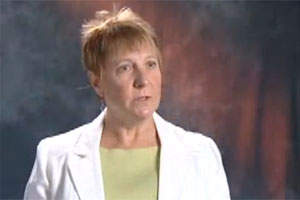The Women’s Cancer Prevention Program offers lifesaving genetic testing and counseling.
In the fall of 2007, Dr. Molly Brewer, director of the Division of Gynecologic Oncology at the UConn Health Center’s Carole and Ray Neag Comprehensive Cancer Center, and other experts started a new program for women who are at high risk for breast and gynecologic cancers. Today, the Women’s Cancer Prevention Program continues to offer a holistic approach to determining each woman’s risk profile and creating personalized prevention strategies.
That holistic approach to cancer prevention includes everything from help with lifestyle changes to opportunities to participate in clinical studies aimed at prevention. And for some patients, it also includes genetic testing and counseling.
“Genetic counseling is a smart choice for any woman who has a significant family history of cancer or other risk factors,” says Brewer. “Genetic counseling includes a complete evaluation of each patient’s family and personal medical history. From there, an individualized genetic cancer risk assessment is calculated, followed by a discussion of screening and management options.”
One such patient, Pamela Lacko of Simsbury, underwent genetic counseling with Brewer in 2009 based on the fact that both she and her grandmother had been previously diagnosed with ovarian cancer. Given Lacko’s personal and family history, Brewer advised her to pursue genetic testing.
“After careful risk assessment of both family and personal risk factors, genetic testing may be recommended,” explains Dr. Robert Greenstein, director of the Division of Human Genetics at the Health Center. Greenstein also is part of the Women’s Cancer Prevention Program, along with genetic counselors Robin Schwartz and Jennifer Stroop.
Pamela Lacko wrote about her personal experiences as a cancer patient and survivor in her blog that she has recently turned into a book entitled Laughing in the Face of Cancer.
For Lacko, a BRCA blood test — a special DNA test that can detect whether a woman has certain gene mutations that make her more susceptible to breast or ovarian cancers — revealed that she was indeed at high risk for breast cancer. In fact, her chances of developing breast cancer were 85 percent. Once she tested positive for the rare gene mutation, Lacko almost immediately made the decision to have both of her “healthy” breasts removed in a double mastectomy to preempt any possible battle with breast cancer down the line.
Despite the difficulty of Lacko’s choice, she made her decision based on hard facts that would not have otherwise been known without genetic testing and counseling. In all likelihood, the DNA testing and subsequent surgery spared Lacko from another bout with cancer, Brewer notes.
“By helping women understand their risk of cancer, or recurrence of cancer, we can work with them to create meaningful cancer prevention strategies,” she adds. “Because we are a university hospital, we also have many resources to draw upon to help women make informed decisions.”
For more UConn Health Center news and information, follow us on Facebook, Twitter and YouTube.



